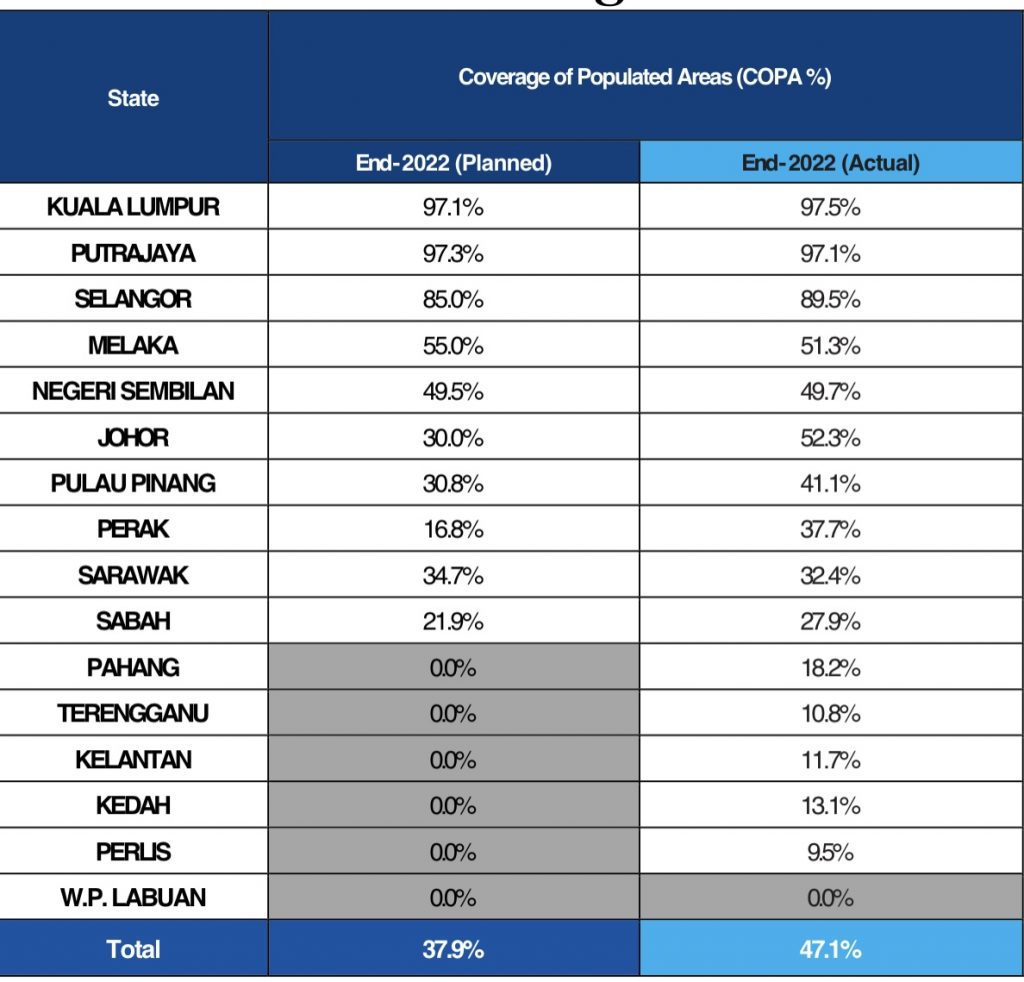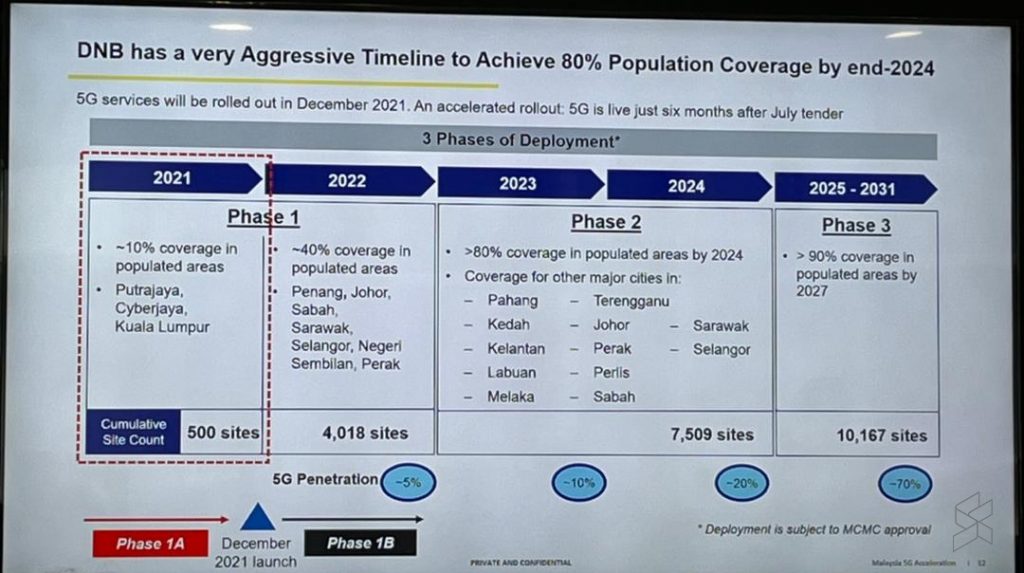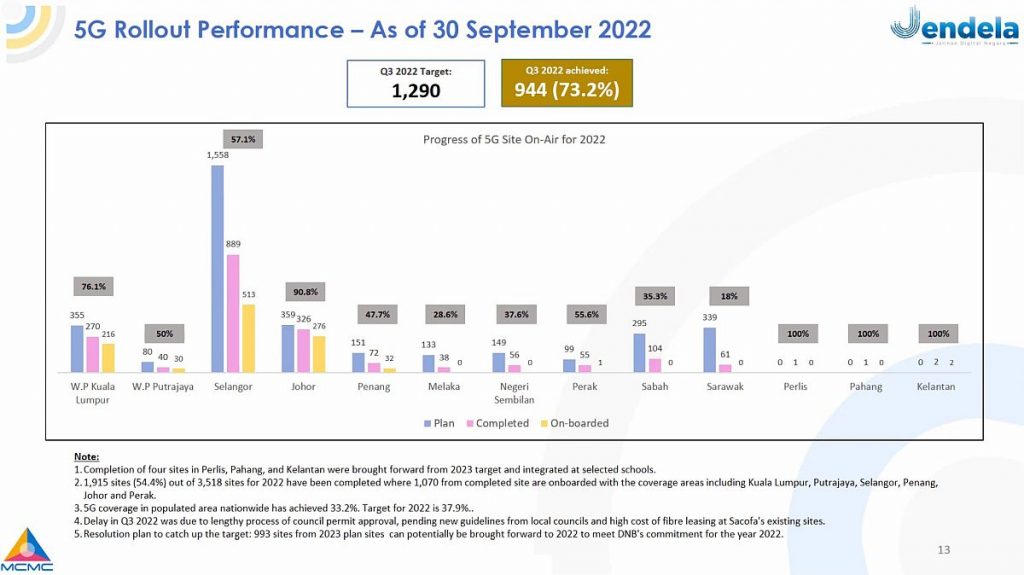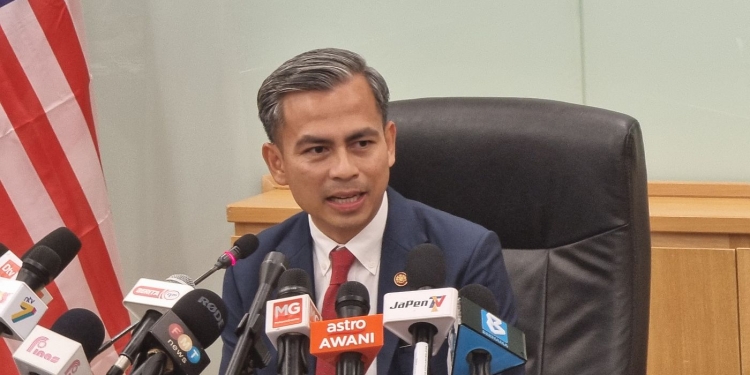On Monday, Digital Nasional Berhad (DNB) announced that it has exceeded its 5G rollout target by achieving close to 50% 5G population coverage by the end of 2022. It appears that Communications and Digital Minister Fahmi Fadzil isn’t convinced as he urges DNB to explain how they arrived at the figures.
Fahmi added that the Malaysian Communications and Multimedia Commission (MCMC) have yet to verify their 5G coverage claims. He said next time, DNB shouldn’t publish their 5G claims prior to verification.
I think @DNB_Official must explain how they arrived at these figures.@MCMC_RASMI has not yet verified this info.
— Fahmi Fadzil 🇲🇾 (@fahmi_fadzil) January 3, 2023
Next time I don’t think DNB should publish prior to verification. https://t.co/JHjCipq6LJ
DNB which is Malaysia’s 5G Single Wholesale Network claims to have exceeded its 40% 5G population coverage target by rolling out 3,900 5G sites across 13 states and two Federal Territories to provide 47.1% coverage of populated areas in Malaysia. Labuan is the only territory that doesn’t have 5G coverage as of 31st December 2022.

It claims to have over 97% 5G population coverage in Kuala Lumpur and Putrajaya, and close to 90% 5G population coverage in Selangor. The single wholesale network has also enabled some 5G coverage in Pahang, Terengganu, Kelantan, Kedah and Perlis towards the end of last year despite not being included under the original 5G deployment plan for Phase 1.

It is worth noting that DNB originally aims at delivering 4,018 5G sites by the end of 2022 to achieve 40% 5G population coverage. During the previous JENDELA update, MCMC reported that DNB has rolled out 1,915 sites with 33.2% 5G population coverage as of 30th September 2022. With DNB’s latest claim, this means they have deployed nearly 2,000 additional 5G sites in just 3 months.

Last month, it said that the reduced site count is a result of supply chain issues earlier this year and delays in securing necessary local council approvals primarily in Selangor and Sarawak. However, it was confident of achieving 40% 5G population coverage with 500 fewer 5G sites and redirected its deployment efforts to other states which were initially intended for 2023 and beyond. The single wholesale network aims to achieve 80% 5G population coverage by the end of 2024.
After the change of administration, Prime Minister Anwar Ibrahim called for a review of DNB’s 5G single wholesale network model, claiming that it was not done in a transparent manner and there was no tender. Fahmi Fadzil said last month that the Communications and Digital, as well as Finance Ministry, are looking into the technical assessment of the 5G rollout while assuring that DNB’s current rollout efforts will not be interrupted.
At the moment, DNB is the only entity allowed to roll out 5G in the country as it is the sole company assigned with the 700MHz, 3.5GHz and 26/28GHz spectrum for 5G services. Meanwhile, telcos are currently not able to roll out 5G services as the previous administration has revoked technology neutrality for their existing spectrum, limiting them to just 4G services.
5G is currently available through five telcos such as Celcom, Digi, U Mobile, Telekom Malaysia (Unifi Mobile) and YTL Communications (Yes 5G). To enjoy 5G, consumers must have a smartphone that’s enabled for 5G on their telco, subscribe to a 5G-enabled plan and be within DNB’s network coverage areas. With five telcos offering 5G to consumers, DNB said its network has experienced a surge of 5G usage from 32TB to 253TB daily with a peak of 90,000 concurrent users recorded on 31st December 2022. DNB says its network offers an average download speed of 380Mbps on 5G versus 35Mbps on current 4G networks.
Related reading
- DNB: Malaysia now has close to 50% 5G population coverage, exceeds 2022 target
- DNB: Malaysia’s 5G rollout is one of the world’s fastest, to exceed 40% coverage by end of 2022
- Fahmi Fadzil: Malaysia to assess current 5G deployment, concerned with delay and cost to rollout
- Anwar: Malaysia to review 5G deployment plans through state-owned DNB








